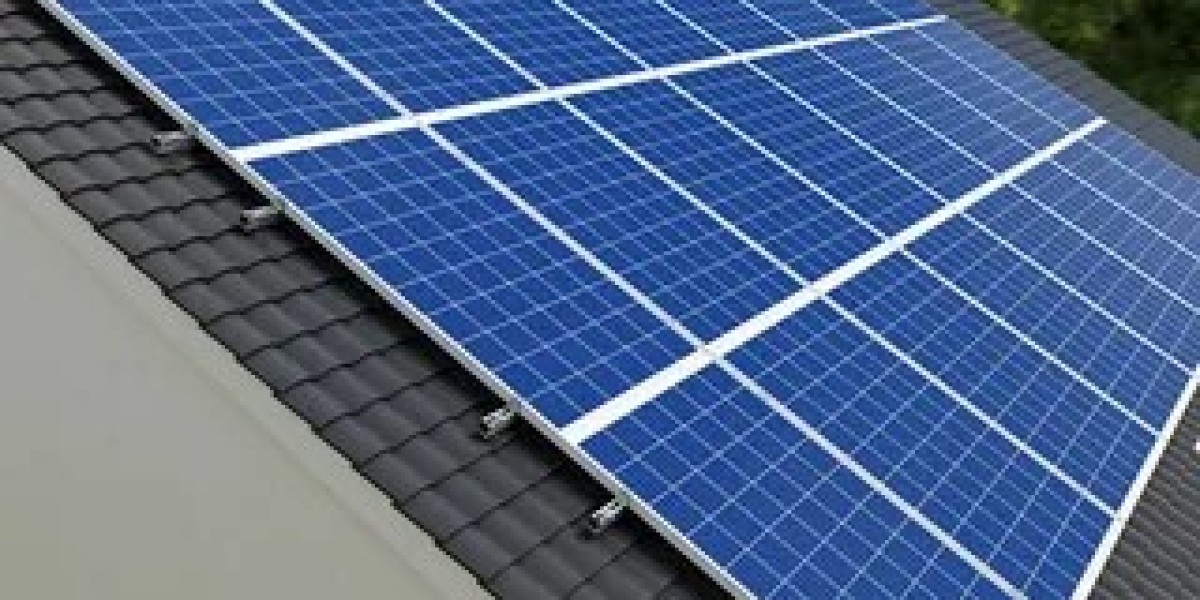As electricity prices continue to rise and environmental concerns grow, many homeowners are turning to renewable energy solutions. One of the most effective and widely adopted options is the use of residential solar systems. These systems convert sunlight into usable electricity, allowing households to reduce their energy bills and reliance on the grid.
This blog will provide a clear overview of what residential solar systems are, how they work, their advantages, and key factors to consider before installation. Whether you’re just starting your research or already considering solar energy, this guide will help you make informed decisions.
What Are Residential Solar Systems?
Residential solar systems are energy systems designed to power homes using solar energy. These systems typically consist of solar panels mounted on the roof, an inverter to convert electricity, and sometimes a battery for energy storage. The solar panels capture sunlight and turn it into direct current (DC) electricity, which is then converted into alternating current (AC) by the inverter for use in the home.
Depending on the setup, excess energy can either be stored in a battery or exported to the electricity grid. This makes residential solar system a practical and efficient way to produce clean energy right at home.
How Do Residential Solar Systems Work?
The process is straightforward:
- Sunlight Hits the Panels: Photovoltaic (PV) cells in the solar panels absorb sunlight.
- Conversion to Electricity: The panels convert sunlight into DC electricity.
- Inverter Converts to AC: The inverter changes the DC electricity into AC power for home use.
- Power Usage or Storage: The electricity is used immediately or stored in a battery (if installed).
- Exporting Excess Power: Any surplus energy not used or stored can be sent back to the grid.
Many homes are also eligible for feed-in tariffs, which provide credits for energy exported to the grid.
Benefits of Residential Solar Systems
1. Reduced Electricity Bills
One of the most immediate advantages is the reduction in electricity costs. By generating your own power, you rely less on energy from the grid.
2. Energy Independence
Residential solar systems provide more control over your energy usage. You can produce, use, and even store your own electricity.
3. Environmental Impact
Switching to solar helps reduce greenhouse gas emissions and contributes to a cleaner environment.
4. Increased Property Value
Homes equipped with solar systems often have higher resale value, as buyers are increasingly looking for energy-efficient properties.
5. Government Incentives
Many regions offer rebates, tax credits, or incentives to encourage the installation of residential solar systems, which can significantly reduce the upfront cost.
Types of Residential Solar Systems
There are three main types of residential solar systems:
1. Grid-Tied Systems
These are the most common and are connected to the public electricity grid. They allow homeowners to use solar power and draw from the grid when needed. Excess energy can be exported back to the grid.
2. Off-Grid Systems
These systems are completely independent of the electricity grid. They require batteries to store energy for nighttime or cloudy days. Off-grid systems are suitable for remote areas without grid access.
3. Hybrid Systems
A hybrid system combines both grid connection and battery storage. It provides greater flexibility, allowing homeowners to use stored power during outages or peak rate periods. The solar battery cost can vary depending on the battery's capacity, brand, and installation requirements.
Things to Consider Before Installing Residential Solar Systems
1. Roof Condition and Orientation
Ensure your roof is in good condition and receives enough sunlight. North-facing roofs (in the southern hemisphere) or south-facing (in the northern hemisphere) are usually ideal.
2. Energy Usage
Assess your household’s energy consumption to choose the right system size. Larger households may need more panels to meet their needs.
3. Budget and Financing Options
While the cost of solar has decreased, it’s still a major investment. Look into available financing plans or government rebates that can make installation more affordable.
4. Quality of Components
Choose high-quality solar panels and inverters from trusted manufacturers. A reliable system ensures long-term performance and durability.
5. Installer Experience
Work with a certified and experienced installer. A proper installation ensures safety, efficiency, and compliance with local regulations.
Maintenance and Lifespan
Residential solar systems are generally low maintenance. Most solar panels come with warranties of 20–25 years. Regular cleaning and occasional inspections ensure that the system operates efficiently.
Inverter lifespans are typically 10–15 years and may need replacement at some point. Battery systems, if included, may have varying lifespans depending on the type and usage.
Is a Residential Solar System Right for You?
If you are looking to lower your electricity bills, reduce your carbon footprint, and increase the value of your home, then a residential solar system is a smart choice. With advancements in technology and improved affordability, more homeowners are seeing solar as a long-term solution to their energy needs.
Even if you live in an area with limited sunlight, solar systems can still provide a significant portion of your energy and reduce your reliance on traditional power sources.
Conclusion
Residential solar systems are a reliable and practical investment for modern homeowners. They offer energy savings, greater independence, and a positive environmental impact. As energy prices rise and climate concerns grow, adopting solar power at home is not just a trend—it’s a forward-thinking solution.
Before installing, evaluate your home’s needs, explore local incentives, and consult a certified installer to find the right system. With the right planning, a residential solar system can provide clean and cost-effective energy for years to come.






